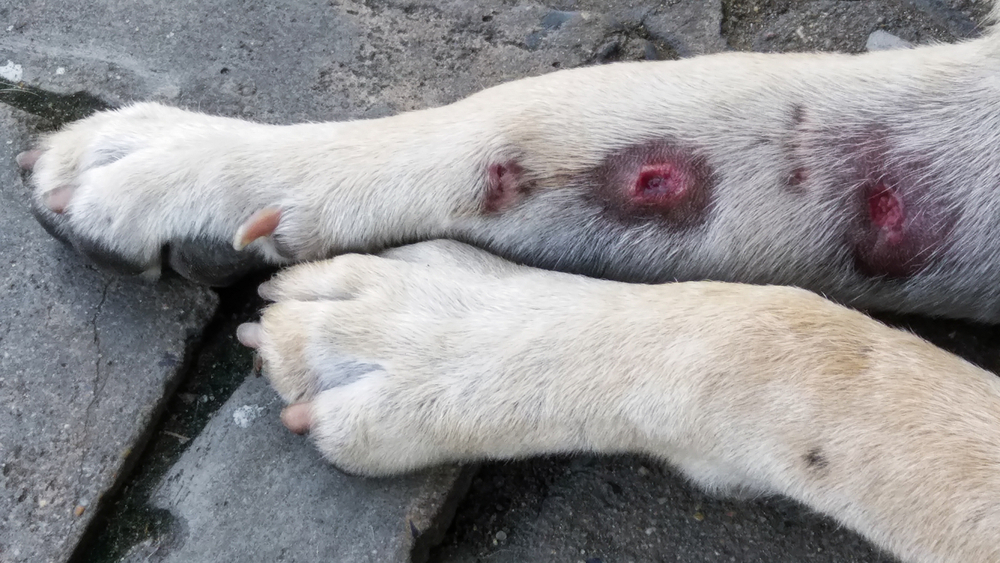Dogs enrich our lives and bring so much love and joy. But not all aspects of dog ownership are as heartwarming as cuddle sessions and those soulful eyes.
Sadly, hot spots are common for dogs and are pretty gross to look at. Luckily, your friends at Union Lake Veterinary Hospital are here to help you know how to spot them and figure out what to do about them.
Hot Spots: The Basics
Hot spots are caused when inflammation and a bacterial infection come together on your dog’s skin. These spots, or acute moist dermatitis, are painful for your pup, and they often ooze, which also makes them very unappealing to look at. Hot spots tend to start out as small red marks on your dog’s skin. They often look like a harmless insect bite.
Once they appear, they will quickly get worse and will eventually become hot, painful, and start to ooze. They might even lead to hair loss around the affected area. While they can happen anywhere, they are most frequently seen on the head, the extremities, or the hips. If you think your dog is suffering from hot spots, you should schedule an appointment with your veterinarian.
Hot Spots: But Why?
There is a wide range of potential catalysts for hot spots. These include:
- Parasites
- Flea bite allergies
- Food allergies
- Secondary infections (usually in the ears or on the skin)
- Contact with allergens or other irritants
- Repetitive licking
- Unkempt coat
Often after the initial issue occurs, a dog will make it worse by licking, biting, or scratching at the affected area. This combination can cause the bacterial infection that leads to hot spots. If your dog has a chronic condition (like allergies), he might experience regular hot spots.
Hot Spots: Finding the Cause
The best way to prevent hot spots is to figure out what is causing them in your dog. There are some things you can do at home to help prevent them or ease the discomfort, but the best way to head off future hot spots, and heal existing ones, is to find and deal with the cause.
Some breeds are more prone to developing them because they have thicker coats. These include:
- Golden retrievers
- St. Bernards
- German shepherds
- Labrador retrievers
- Rottweilers
Many dogs are susceptible to hot spots in the summer because of the warmer weather. Pups that tend to swim a lot, or those who get frequent baths might also see more.
Hot Spots: Treatment
It is very important to go to the vet if you suspect your dog is suffering from hot spots. Treatment will depend on the severity of the infection and the cause. Your vet will perform a thorough exam and take a detailed history to make the most effective diagnosis. Treatments can range from cleaning the area with an antiseptic to prescribing medication. Most dogs will experience relief for their hot spots within 7 days of initial treatment.
The team at Union Lake Veterinary Hospital is here to help with any veterinary issue from hot spots to dental disease. Our team goes the extra mile to ensure your pets always get the best care. To learn more about our services or to schedule an appointment, please call (248) 363–1508.

